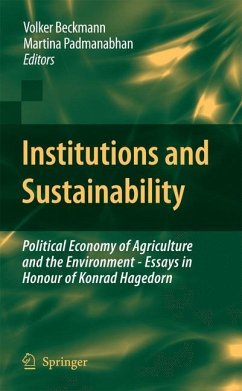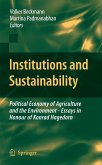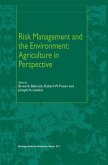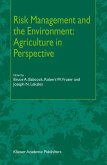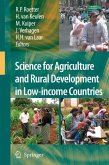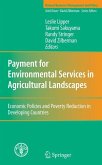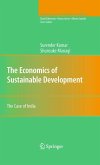From the first vague idea to use Konrad Hagedorn's 60th birthday as an inspi- tion for taking stock of his vibrant academic contributions, this joint book project has been a great pleasure for us in many ways. Pursuing Hagedorn's intellectual development, we have tried to reflect on the core questions of humanity according to Ernst Bloch "Who are we?", "Where do we come from?" and "Where are we heading?" In this way, and without knowing it, Konrad Hagedorn initiated a c- lective action process he would have very much enjoyed ... if he had been allowed to take part in it. But it was our aim and constant motivation to surprise him with this collection of essays in his honour. Konrad Hagedorn was reared as the youngest child of a peasant family on a small farm in the remote moorland of East Frisia, Germany. During his childhood in the poverty-ridden years after the Second World War, he faced a life where humans were heavily dependent on using nature around them for their livelihoods; meanwhile, he learned about the fragility of the environment. As a boy, he - tended a one-room schoolhouse, where his great intellectual talents were first r- ognised and used for co-teaching his schoolmates. These early teaching expe- ences might have laid the foundations for his later becoming a dedicated lecturer and mentor.
From the reviews:
"This book is a fine collection of essays, located at the intersection between agricultural, environmental, and institutional economics. ... The book has several strong sides. First of all, it is truly interdisciplinary. Beyond economics, the contributed essays come from anthropology, comparative political science, economic sociology, and cognitive sciences. ... Overall, the book would fit very well the library of any research centre or department working on environmental, agricultural, and/or institutional economics." (Gam Aldashev and Elena Vallino, European Review of Agricultural Economics, Vol. 37 (3), 2010)
"This book is a fine collection of essays, located at the intersection between agricultural, environmental, and institutional economics. ... The book has several strong sides. First of all, it is truly interdisciplinary. Beyond economics, the contributed essays come from anthropology, comparative political science, economic sociology, and cognitive sciences. ... Overall, the book would fit very well the library of any research centre or department working on environmental, agricultural, and/or institutional economics." (Gam Aldashev and Elena Vallino, European Review of Agricultural Economics, Vol. 37 (3), 2010)

